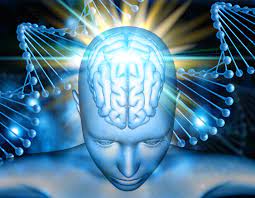We are proud to announce that the tellmeGen DNA Test's Complex Diseases module now encompasses an extensive range of conditions, providing a detailed genetic insight into each. Below is a brief overview of each condition covered:
Osteoarthritis of the Knee: A degenerative joint disease causing pain and stiffness, often leading to reduced mobility and quality of life.
Abdominal Aortic Aneurysm: A bulging in the abdominal aorta that can grow silently and potentially rupture, with life-threatening consequences.
Abdominal Hernia: Occurs when an organ or fatty tissue squeezes through a weak spot in the surrounding muscle or connective tissue.
Addison's Disease: An endocrine disorder where the adrenal glands produce insufficient steroid hormones, leading to fatigue and muscle weakness.
Age-related Macular Degeneration: A progressive eye condition affecting the macula, leading to central vision loss in older adults.
Allergic Rhinitis: Commonly known as hay fever, this allergic reaction can cause significant nasal congestion, sneezing, and itching.
Alzheimer's Disease: A neurodegenerative condition characterised by progressive memory loss and cognitive decline.
Amyotrophic Lateral Sclerosis: A fatal neurological disease that causes muscle weakness and atrophy due to the degeneration of motor neurons.
Angina Pectoris: Chest pain or discomfort due to coronary heart disease, indicating restricted blood flow to the heart.
Arterial Hypertension: High blood pressure in the arteries, which can lead to serious cardiovascular complications if not managed.
Asthma: A chronic respiratory condition that causes airway inflammation and difficulty breathing.
Atopic Dermatitis: Also known as eczema, this condition causes itchy and inflamed skin.
Atrial Fibrillation: An irregular and often rapid heart rate that can increase the risk of strokes and heart disease.
Barrett's Esophagus: A condition where the esophagus lining is damaged by acid reflux, which can lead to esophageal cancer.
Basal Cell Carcinoma: A type of skin cancer that begins in the basal cells and is often caused by long-term exposure to UV radiation.
Bipolar Disorder: A mental health condition causing extreme mood swings, including emotional highs and lows.
Carpal Tunnel Syndrome: A condition causing numbness, tingling, or weakness in the hand due to pressure on the median nerve.
Cataracts: Clouding of the eye's lens, leading to decreased vision and, if untreated, blindness.
Chronic Obstructive Pulmonary Disease (COPD): A group of lung conditions that cause breathing difficulties.
Chronic Kidney Disease: The gradual loss of kidney function, which can eventually lead to kidney failure.
Chronic Lymphocytic Leukemia: A type of cancer that affects the blood and bone marrow, developing slowly over time.
Colorectal Cancer: Cancer that starts in the colon or rectum, with the potential to grow and spread if undetected.
Coronary Heart Disease: A disease of the heart's major blood vessels that can lead to heart attacks.
Crohn's Disease: A chronic inflammatory bowel disease that affects the lining of the digestive tract.
Cutaneous Malignant Melanoma: A serious form of skin cancer that arises from pigment-containing cells known as melanocytes.
Deep Vein Thrombosis: A blood clot in a deep vein, usually in the legs, which can be life-threatening if it travels to the lungs.
Depression: A common mental disorder characterised by persistent sadness and a lack of interest or pleasure in previously rewarding or enjoyable activities.
Diabetes Mellitus Type 1: An autoimmune disease where the pancreas produces little or no insulin.
Diabetes Mellitus Type 2: A chronic condition that affects the way the body processes blood sugar (glucose).
Diaphragmatic Hernia: A defect or hole in the diaphragm that allows the abdominal contents to move into the chest cavity.
Diverticulosis - Diverticulitis: Small pouches in the colon that can become inflamed or infected.
Dupuytren's Disease: A hand deformity that develops over years as the fingers bend towards the palm and cannot be fully straightened.
Endometrial Cancer: A type of cancer that begins in the lining of the uterus, often detectable by genetic predisposition testing.
Endometriosis: A painful disorder where tissue similar to the uterus lining grows outside the uterus.
Fasciitis: Inflammation of the fascia, the connective tissue around muscles, nerves, and blood vessels.
Gallstones: Hardened deposits in the gallbladder that can cause severe pain and digestive problems.
Gastroesophageal Reflux Disease: A digestive disorder where stomach acid or bile irritates the food pipe lining.
Glioblastoma: An aggressive type of cancer that can occur in the brain or spinal cord.
Glioma: A type of tumor that occurs in the brain and spinal cord.
Gout: A form of arthritis characterised by severe pain, redness, and tenderness in joints.
Graves' Disease: An autoimmune disease that leads to overactivity of the thyroid gland (hyperthyroidism).
Haemorrhoidal Disease: Swollen veins in the lower rectum and anus, leading to discomfort and bleeding.
Headaches: Can range from mild to severe and can be a symptom of numerous conditions.
Heart Failure: A chronic condition where the heart doesn't pump blood as well as it should.
Hyperlipidemia: High levels of lipids in the blood, increasing the risk of heart disease.
Hypothyroidism: A condition where the thyroid gland doesn't produce enough thyroid hormone.
Inguinal Hernia: Occurs when tissue, such as part of the intestine, protrudes through a weak spot in the abdominal muscles.
Intracranial Aneurysm: A bulge or ballooning in a blood vessel in the brain that can lead to stroke if it ruptures.
Intrahepatic Cholestasis of Pregnancy: A liver disorder that occurs in late pregnancy and may cause jaundice.
Juvenile Idiopathic Arthritis: An autoimmune disorder causing persistent joint pain in children.
Keratoconus: A progressive eye disease where the cornea thins and begins to bulge, distorting vision.
Lung Cancer: A type of cancer that is characterised by uncontrolled cell growth in tissues of the lung.
Macular Telangiectasia Type 2: A condition affecting the retina, leading to loss of central vision.
Migraines: A headache of varying intensity, often accompanied by nausea and sensitivity to light and sound.
Multiple Myeloma: A cancer of plasma cells that can damage bones and the immune system.
Multiple Sclerosis: A disease in which the immune system eats away at the protective covering of nerves.
Myeloproliferative Neoplasms: A group of diseases that cause blood cells in the bone marrow to grow abnormally.
Myocardial Infarction: Commonly known as a heart attack, it occurs when blood flow decreases or stops to a part of the heart.
Narcolepsy: A chronic sleep disorder characterised by overwhelming daytime drowsiness and sudden attacks of sleep.
Nasal Polyps: Soft, painless growths on the lining of your nasal passages or sinuses.
Neuroblastoma: A type of cancer that forms in certain types of nerve tissue.
Non-alcoholic Fatty Liver Disease: Excess fat storage in liver cells, a leading cause of liver disease.
Non-medullary Thyroid Cancer: A type of thyroid cancer that starts in the thyroid gland's follicular cells.
Non-toxic Multinodular Goiter: A thyroid condition characterised by an enlarged gland with multiple nodules.
Open Angle Glaucoma: A condition that can lead to vision loss due to damage to the optic nerve.
Oral Cavity and Oropharyngeal Cancer: Cancers that develop in the mouth or the back of the throat.
Osteoarthritis: A degenerative joint disease that results in the breakdown of joint cartilage and underlying bone.
Osteoarthritis of the Hip: A form of arthritis causing the hip joints to stiffen and become painful.
Osteoporosis: A bone disease that occurs when the body loses too much bone, makes too little bone, or both.
Pancreatic Cancer: A type of cancer that begins in the pancreas and can spread rapidly to nearby organs.
Parkinson's Disease: A progressive nervous system disorder that affects movement.
Peripheral Arterial Disease: A common circulatory problem in which narrowed arteries reduce blood flow to the limbs.
Polycystic Ovary Syndrome: A hormonal disorder causing enlarged ovaries with small cysts on the outer edges.
Primary Biliary Cirrhosis: A chronic disease that destroys the bile ducts in the liver.
Psoriasis: A skin disease that causes red, itchy scaly patches, most commonly on the knees, elbows, trunk, and scalp.
Restless Legs Syndrome: A disorder that causes a strong urge to move one's legs.
Rheumatoid Arthritis: An autoimmune disorder that primarily affects joints, leading to inflammation and pain.
Schizophrenia: A serious mental disorder in which people interpret reality abnormally.
Sensorineural Hearing Loss: The most common type of permanent hearing loss, occurring from damage to the inner ear.
Squamous Cell Carcinoma of the Skin: A common form of skin cancer that can be aggressive if not treated early.
Systemic Lupus Erythematosus: An autoimmune disease in which the immune system attacks its own tissues.
Ulcerative Colitis: A chronic, inflammatory bowel disease that causes inflammation in the digestive tract.
Urolithiasis: The formation of stones in the urinary system, causing severe pain and blockage.
Vitiligo: A disease that causes the loss of skin colour in blotches.
Each condition is described within the character limit, providing a snapshot of the disease for informational purposes.















